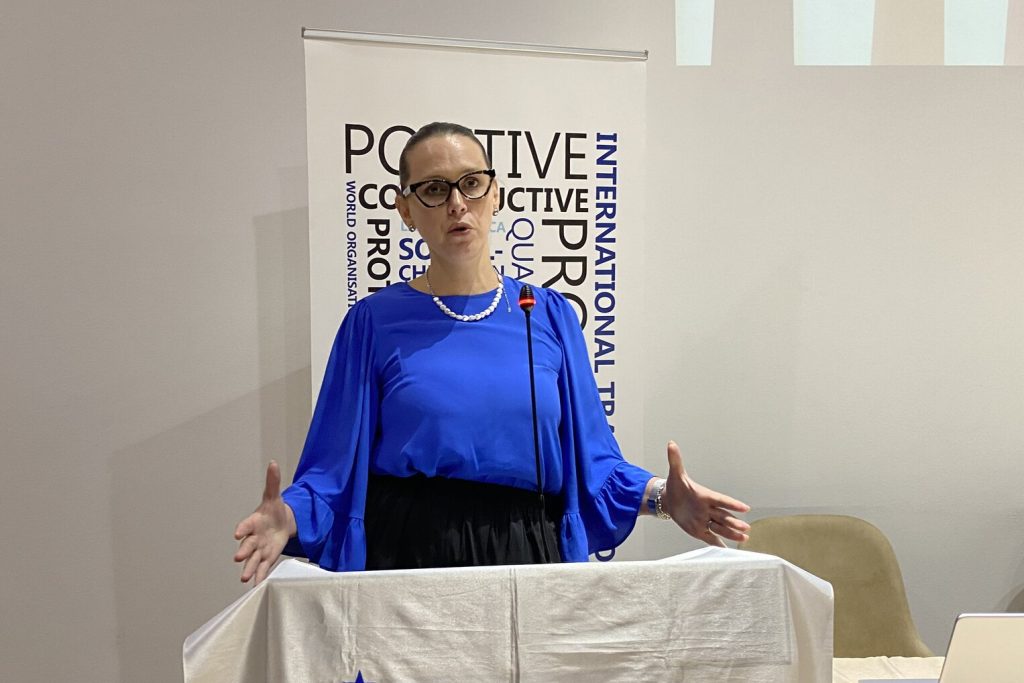In the last three decades the countries of the Western Balkan have been faced with a high level of indebtedness, a high level of grey economy, a high level of unemployment and as a result increased poverty. These factors have an impact on the creation of informal enterprises and/or the creation of informal jobs in formal enterprises. Faced with low levels of liquidity and a lack of qualitative labour-force, part of the enterprises hire employees that they do not register and for whom they do not pay pension-benefits and health fees to the state institutions.
In a situation where employees face a lack of basic social and legal protection, as well as other employment benefits, employees hired in the informal economy must be satisfied with keeping their workplace only. Having in mind the high rate of unemployment, they are afraid to ask for higher salaries and other economic or social benefits.
So how to ensure workplace stability under such circumstances. Over 30 trade union leaders from the Western Balkan predominantly participated in two-day seminar in Skopje, North Macedonia. The initiative was organized by WOW-Europe and the North Macedonian trade union SFDM in cooperation with the European Centre for Workers’ Questions (EZA) and funded by the European Commission.
“Creating a business environment for individuals with entrepreneurial intentions is critical to reducing poverty and combating informality” Veland Ramadani, Professor Business and Economics at the South East European
University (North Macedonia) started his presentation. “Countries in the early stages of development tend to have a high level of informality in the entrepreneurial sector…When a country’s economy is advanced, formal entrepreneurship dominates over informal entrepreneurial activities” he added. Important to mention is that informal economy is almost always precarious. In North Macedonia, as well as in the rest of the Western Balkan, the level of informal employment is quite high. But this need not be a bad thing as it is sometimes the start to formal employment.
When it comes to workplace stability one cannot forget instability and insecurity at the job. Mobbing of bullying accounts for numerous problems on the work floor. “Mobbing is often referred to as rude, threatening behaviour, conflict, bad management, clash of characters, or simply a problem of intolerant personalities” said Emilija Boshkovska, Psychologist (North Macedonia). In North Macedonia, “30.4% of the respondents declared that they feel mobbed, of which 2% are the target of mobbing every day.” These are significant numbers. Mobbing causes a lot of stress on the victim and leads to dissatisfaction and unease. The stress it leads to negatively influences the performances of those it affects.
Mrs. Maja Ristova, Attorney at Law, Law office Ristova (North Macedonia) further looked into harassment from a legal point-of-view. What is often lacking is clarity about what mobbing entails. While some types of mobbing are clear other forms may be perceived as mobbing while in fact they are not. Additionally the legislation is insufficiently regulated. As a result there have only been two final court verdicts for mobbing in North Macedonia ever. The problem with mobbing is ff course much larger.
The informal economy has grown increasingly in Turkey as a result of high inflation and the depreciation of the Turkish Lira, Mr. Hüseyin Anapali, Founder at Agrolead (Turkey) said. Turkey has had a high inflation problem for a very long time and the current world economy is not helping to decrease this any time soon. But “most of today’s economic problems are actually caused by the increased risk created by non-economic reasons. Therefore, the solution has to start from there.” What is further needed is stability, trust, production, transparency and auditability. This is still lacking and increases the growth and continuation of the informal economy.
Mr. Gerald Silbernagl, President White Collar Workers Works Council Mondi Neusiedler (Austria) showed the workings of the Works Council Toolbox in the papermill-company he represented. Both the Works Council and the Supervisory Board have an important role to play as so-called ‘early warning-indicators’. For example when things are heading the wrong way financially. This way they act as corrective indicators supporting the company. Also, having such structures is very important in cases of conflict such as when a social plan is negotiated to cushion the financial and social consequences of dismissal.
‘Strong financial institutions are key factors for economic growth. The building of good reputation and public trust in financial institutions have positive impact on overall economic development’, said Mr. Goce Trajkovski, Senior Advisor at the National bank of the Republic of North Macedonia and General Secretary SFDM (North Macedonia). However, the degree of informal activities in an economy causes all kinds of instability. Leading to a lack of trust, not only in financial institutions, but society as a whole.
‘Workplace stability and stability in general is pivotal for the financial sector and applies to all employment categories’, stated Vasilis Mantazis, Secretary of International Relations National Bank Employees’ Trade Union SYETE (Greece). ‘In Greece during the debt crisis there was a domino-effect: from financial, to social, to political, leading to a severe lack of stability’ he continued. This resulted in ‘coordinated labour destabilization and wage decrease.’ Thereafter many initiatives were launched which eventually meant a downsize in staff. When looking at the financial sector today we see a digital transformation: remote labour, lack of specialization, increased numbers of outer managers, and multiple labour forms. These changes are creating a feeling of uncertainty.
Informal economy and workplace stability in many ways seem incompatible. When there is workplace stability one does not need to work in an informal manner. What is recuring in all the discussions was that an economy and labour-market cannot act without a certain level of trust. This takes time to achieve, but is an essential feature for stability.
for pictures click here





